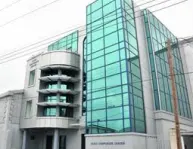Submitted by Ready Done

Modern Agriculture
Finding a balance in life is one of the best feelings one can have, bills paid, meat in the fridge, veggies in the Aquaponic system. At this point in life, the air smells better and the grass is greener, no stress, life as mother nature intended it.
To maintain that state of balance is the hard part, the postman never forgets where you live and there are always next month’s bills. For an average person the cycle of work/pay is life as we come to know and love. We all understand how cashing in big now has repercussions for a long time after. Sometimes we grossly underestimate the length of the repercussions. We work as a society to spread out our responsibility and workload. The promise is that the average person can maintain a decent living with an honest day’s work; with that in mind the benefits of society far out way the required work, the mass production of high quality goods, like, toilet paper, Range rovers, North face bags and Galaxy s3’s make life sweet, we would not want to live without them. Our love affair with technology began when the first farmer left the first garden with the first tool.
A staff witch incidentally was the first piece of technology, given to us, ever since we have been improving upon technology to do what we always did, what we are programmed to do, garden, the current path of industrialized agriculture, genetically modified organisms and chemical fertilizers has worked well for us allowing one farmer to grow food for hundreds even thousands allowing us to have our full time jobs, and continue the cycle of society.
Continue reading →




























You must be logged in to post a comment.